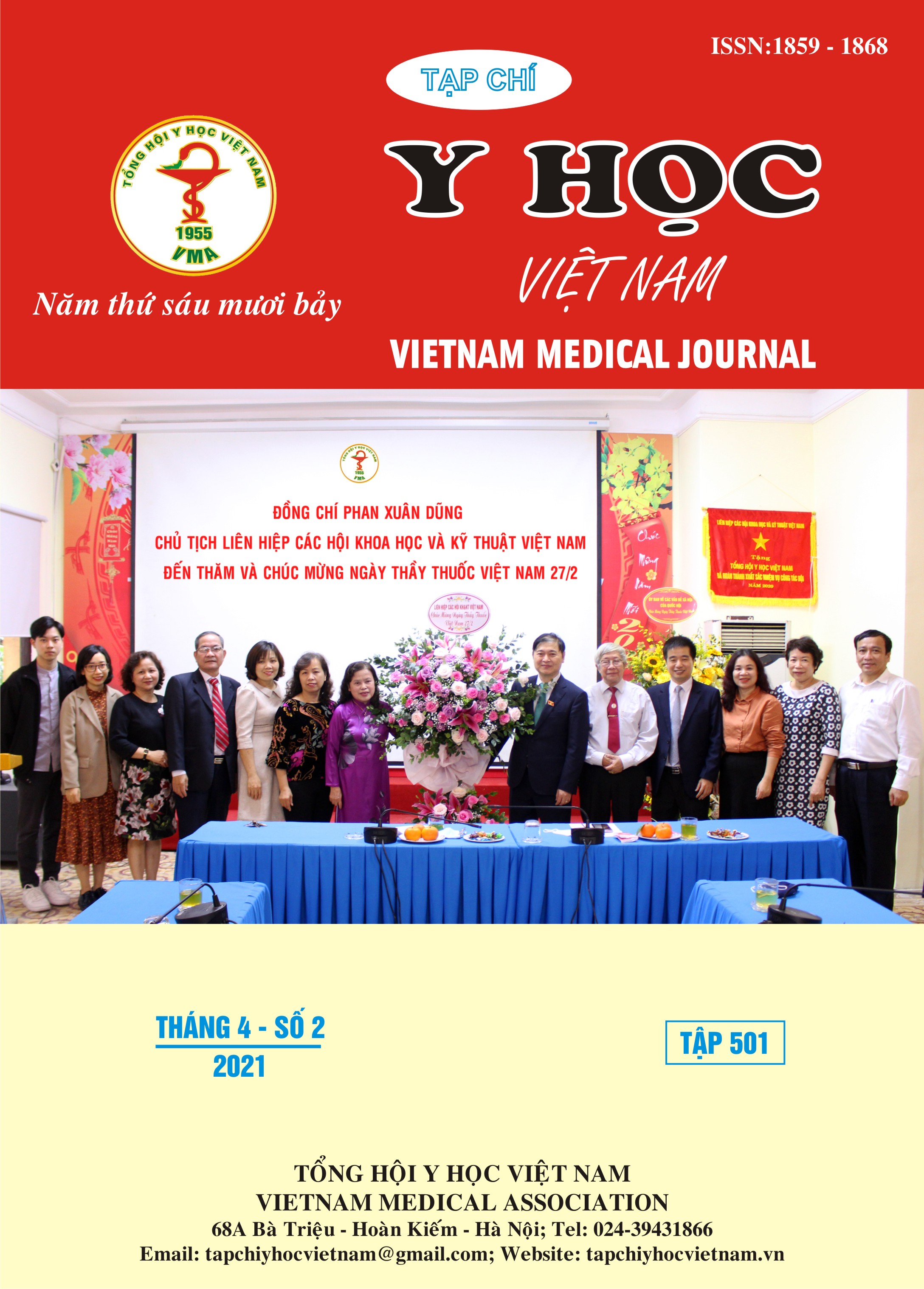EFFECTS OF HEPATITIS VIRUS INFECTION ON THE RESULTS OF SORAFENIB TREATMENT IN PATIENTS WITH HEPATOCELLULAR CARCINOMA
Main Article Content
Abstract
Sorafenib is approved for first line treatment of hepatocellular carcinoma (HCC) without indications of local intervention treatment. Some study have been done to determine the prognostic factors to treatment outcomes, but until now there is no consensus, in which hepatitis viral infection is controversial factor. The study was done to assess the effect of hepatitis vỉal infection on the results of sorafenib treatment in patients with HCC. Descriptive study on 110 HCC patients treatted with sorafenib in K Hospital and Hanoi Medical University Hospital from January 2010 to November 2018. The rate of hepatitis B virus (HBV) 75.5%, hepatitis C virus (HCV) 3.6%, co-infection with hepatitis B and C 0.9%, no hepatitis viral infection 20%. The rate of disease control in the group of HBV, HCV, co-infection with HBV-HCV were 55.4%, 50.0%, 100%, 72.7% (p>0,05), respectively. Median progression free survival (PFS) in the HBV, HCV, HBV- HCVco-infection, and no hepatitis viral infection were 4.4 months, 2.1 months, 5.1 months, and 6.7 months, respectively (p>0,05). Median overal survival (OS) in the HBV, HCV, HBV-HCV co-infection, and non hepatitis viral infection were 5.9 months, 2.5 months, 17.1 months, 13.1 months, respectively (p>0,05). In multivariate analysis, HBV was an independent predictor of OS, HBV increased the risk of death by 2.5 times compared with no HBV (HR = 2,542, 95% CI: 1,327- 4,870).
Article Details
Keywords
HCC, sorafenib, hepatitis viral infection
References
2. Llovet J.M, Ricci S, Mazzaferro V, et al (2008). Sorafenib in Advanced Hepatocellular Carcinoma. New England Journal of Medicine, 359(4), 378–390.
3. Bruix J, Cheng AL, Meinhardt G et al (2017). Prognostic factors and predictors of sorafenib benefit in patients with hepatocellular carcinoma: Analysis of two phase III studies. J Hepatol, 67(5), 999-1008.
4. Bray F, Ferlay J, Soerjomataram I, et al (2018). Global cancer statistics 2018: GLOBOCAN estimates of incidence and mortality worldwide for 36 cancers in 185 countries. CA Cancer J Clin, 68(6), 394–424.
5. Bộ Y tế Việt Nam (2012). Hướng dẫn chẩn đoán và điều trị ung thư tế bào gan nguyên phát. Quyết định số 5250/QĐ-BYT.
6. Pressiani T, Boni C, Rimassa L et al (2013). Sorafenib in patients with Child-Pugh class A and B advanced hepatocellular carcinoma: aprospective feasibility analysis. Ann Oncol, 24(2), 406–411.
7. Nakano M, Tanaka M, Kuromatsu R et al (2015). Sorafenib for the treatment of advanced hepatocellular carcinoma with extrahepatic metastasis: a prospective multicenter cohort study. Cancer Med, 4(12), 1836–1843.
8. Di Costanzo GG, Sacco R, de Stefano G et al (2015). Safety and efficacyof sorafenib in STELLA study, a multicenter, observational, phase IV study in Italian centers [abstract no. L17]. Ann Oncol, 26(6).


